Dozens Arrested As Tensions Escalate At French Farmers Protests
French police arrested dozens of people on Wednesday as tensions escalated to new levels at protests by farmers in search of better conditions that have spread to other European countries.
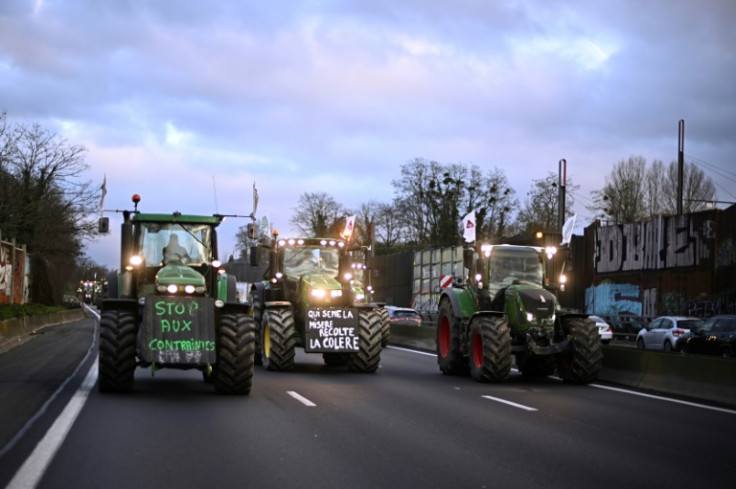
French police arrested dozens of people on Wednesday as tensions escalated to new levels at protests by farmers in search of better conditions that have spread to other European countries.
Defying warnings by the authorities, some farmers converged on the Rungis wholesale market outside of Paris where almost 80 people were arrested when some individuals penetrated the complex.
The French government has generally struck a conciliatory tone during more than a week of protests. But it had also warned that actions at Rungis, which provides food and other essentials to much of the Paris region of 12 million people, and other key infrastructure such as Paris airports, would cross a red line.
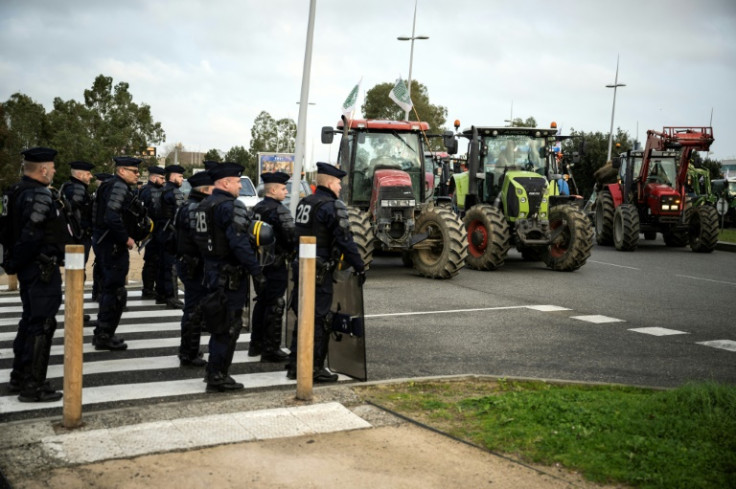
France has been at the centre of growing rural discontent across Europe, with protests also held in Germany, Poland, Romania, Belgium and Italy, putting pressure also on the EU for protections.
Amid mounting calls for higher incomes, less red tape and protection from foreign competition, "there are huge expectations" among farmers, said Arnaud Rousseau, head of France's largest agricultural union the FNSEA.
But he added that not all of the demands could be immediately answered "so I'm trying to call for calm and reasonableness".
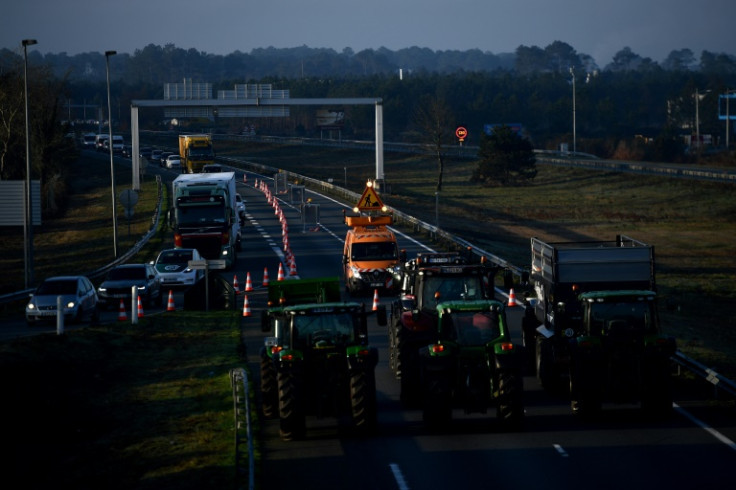
French police in the evening detained 79 people after protesters broke into a storage area in the Rungis market south of Paris causing damage, a police source said. They were taken out by security forces, added the source, who asked not to be named.
Television images showed a heavy security presence around the market including gendarmerie military police armoured vehicles. The extent of the damage was not immediately clear.
The action took place after dozens of farmers from the Lot-et-Garonne department of southwest France arrived at the market.
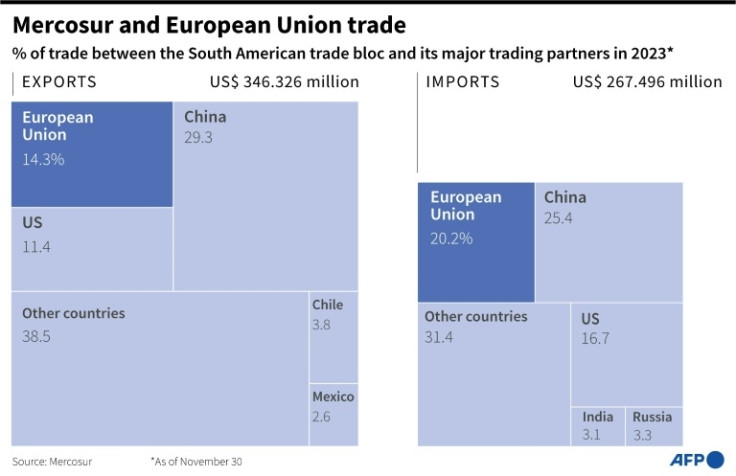
Earlier, 18 people seeking to blockade Rungis had been arrested for "interfering with traffic", police said. Prosecutors said 15 of them were then taken into custody.
Farmers had over the last week set up roadblocks with tractors, hay bales and other agrarian equipment, blocking traffic in areas across the country and from the start of this week on approaches to Paris.
With no end to the action in sight, Prime Minister Gabriel Attal met leaders of the second and third-largest farmers' unions on Wednesday, a source close to his staff said.
The authorities have offered concessions, with Attal -- installed just this month -- telling parliament on Tuesday that his government stood ready to resolve the crisis.
In an apparent reference to contested EU rules, he said: "France must be granted an exception for its agriculture."
The European Union on Wednesday said it would create "safeguards" to stop cheap Ukrainian imports from flooding the market and ease highly contested rules on leaving land unused.
"EU farmers put food on our table," European Commission President Ursula von der Leyen wrote on X, as the measures were announced. "In hardship, we find common solutions."
France is also opposing a trade deal between the European Union and the South American Mercosur bloc -- a key grievance for protesters -- being signed in its current state.
But farmers said the promises, including assurances of higher payouts under the EU's Common Agricultural Policy (CAP), did not go far enough.
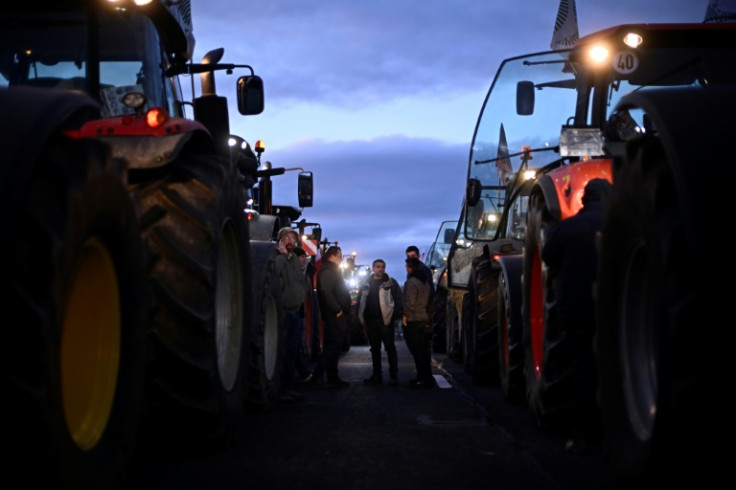
"Several of these measures will take three or four years to be implemented," said Johanna Trau, a grain and cattle farmer from Ebersheim in Alsace, eastern France. "I'll believe it when I see it."
France is the biggest beneficiary of EU farm subsidies, receiving more than nine billion euros ($9.8 billion) each year.
A police source said that as of midday Wednesday there were 6,500 protesting farmers and 4,500 tractors on French roads, blocking 80 spots along major roads.
In addition to moving on Paris, convoys were also attempting to encircle Lyon, France's third-biggest city, and had set up blockades around, or demonstrated in, several other locations across France, causing heavy disruption to commuter traffic.
In Italy, more than 300 farming vehicles gathered in Alessandria, near Milan, with a similar number of farmers and shepherds in the Sardinian port of Cagliari. "Farming is dying," read one placard.
© Copyright AFP 2025. All rights reserved.





















